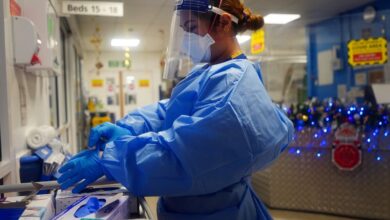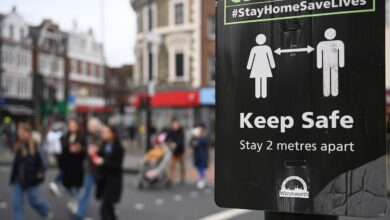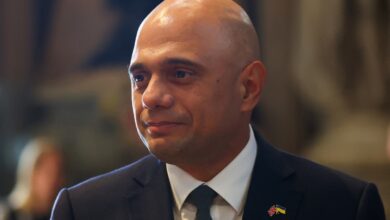NHS 111 crisis adds pressure to health system as Strep A calls spike

A crisis in NHS 111 has left vulnerable patients unable to the get help they need while staff struggle to cope with the volume of calls – piling pressure on other overstretched areas of the emergency care system.
Staff say that as call numbers grow, their jobs have become like “working in a sweatshop”, with targets for the number of calls being put before patient safety.
Over the weekend there was a surge in 111 calls in relation to Strep A symptoms following the death of seven children in the UK, staff told The Independent.
Dr Adrian Boyle, President of the Royal College of Emergency Medicine, has warned a lack of clinical staff at NHS 111 means that call handlers were more likely to refer patients to emergency departments.
He told The Independent that non-clinical staff “rightly err on the side of caution and may often direct patients to the only available service at the time – A&E”.
Dr Boyle added that the NHS 111 online services were “poorly evaluated” and “risk averse” adding: “NHS England is in a difficult position given the historic, prolonged under-resourcing of the health service, but 111 is not going to be its saviour. Wishful thinking that patients should or can go elsewhere should not be government policy.”
Leaked emails seen by The Independent from NHS 111 in London reveal the service has been at the highest level of pressure for weeks, with one source claiming almost 800 hundred patients have been left in long queues for callbacks during one weekend.
NHS 111 is supposed to protect 999 call centres and A&E by pointing patients without emergency needs to other services, but figures show that almost one in six callers give up before they get through to an operator. Some who do get through are having to wait more than 12 hours for a call back which should take a matter of minutes.
An email sent in November asked handler staff to send patients needing a call from a clinician to the nearest A&E or Urgent Care Centre rather than placing them in a queue.
It also asked staff to signpost patients facing a 12 and 24 hour call back to their GP for Monday, Pharmacy or A&E if their symptoms become worse.
It told call handlers: “It’s extremely important we are utilising other services to ensure we are not adding any extra pressure on our [Clinical Assessment Service] queue.”
In another email sent this month, managers said the service was “extremely overwhelmed” and warned staff not to place patients need primary care advice into the clinical assessment service queue unless urgent.
One call handler told The Independent: “The pressure is too high, we take calls after calls, it’s a never-ending process. Patients are not happy because they do not receive the callbacks on time they keep calling back.
“It’s a sweatshop…[Managers] only care about the number of calls we have taken per hour and the focus on the duration of the calls. Patient safety is out of the window… it is completely ignored.”
They said even patients who are priority one and two, who should receive calls back in 15-30 minutes are waiting hours.
It comes as NHS 111 staff – generally among the lowest pay grades for the health service – are set to join thousands of ambulance and healthcare staff in striking over pay before Christmas.
Rachel Harrison, of the GMB union, said call handlers were facing “overwhelming demand”.
Meanwhile, in A&E, the latest data uncovered by The Independent reveals 183,000 patients had to wait more than 12 hours to be admitted to a ward in October, up from 143,000 the previous month. Sources in the NHS said they were concerned that this month that number could top 200,000.
Mathew Westhrope, an NHS 111 manager in the East of England said that there was no point having more call handlers to help patients if there were no services to direct them to.





